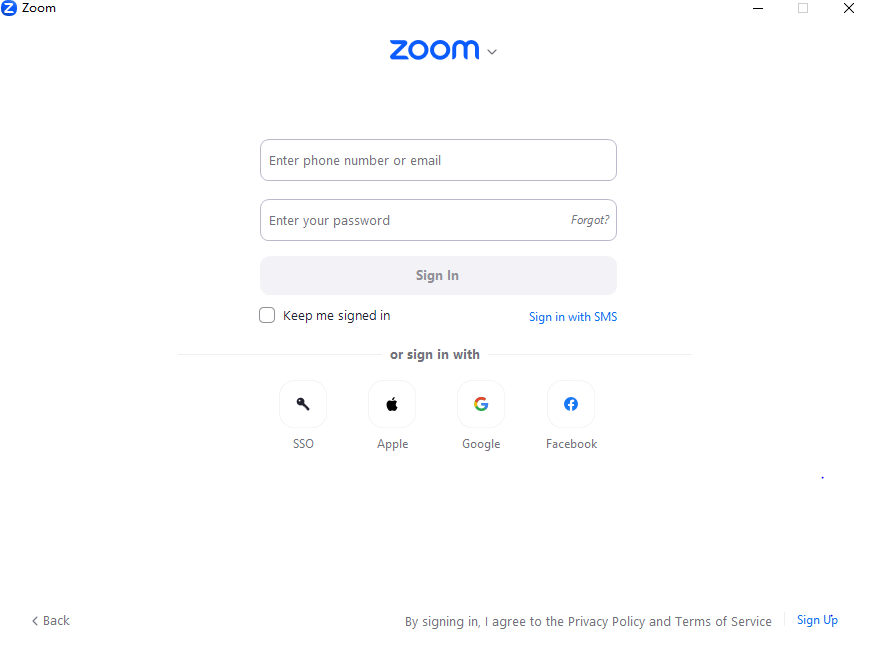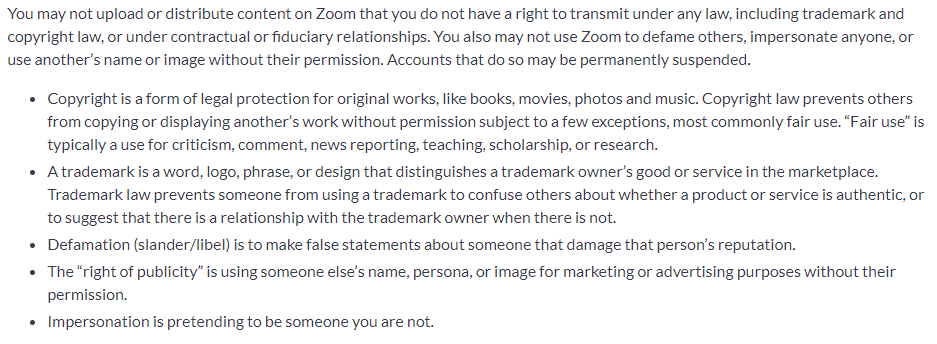Zoom video communications inc, is usually referred as Zoom, and widely used for online chat, and video communications by companies and schools. The first time I used it was during the pandemic, when all my classes conducted online. The major functions of Zoom are video communications (Meetings), messaging (Chat), voice calls (Phone), conference rooms for video meetings (Rooms), virtual events (Events) and contact centers (Contact Center).
Zoom is launched in 2013 by its creator and CEO Eric Yuan. Eric Yuan is a Chinese-American. Because of his background, when Zoom are widely used during the pandemic, the security and privacy policies are concerned by western society. They are worrying that if Zoom would share the users information with Chinese government.
Before we going through the privacy policies of Zoom, let’s considering what information do we need to register and login Zoom.

We can use our phone number, Apple ID, Google ID, and Facebook ID to login. We can also use a safer way to login it, the SSO, and with SMS. SSO allows us to use a company or institution domain to sign in.
When register it, We need to provide our e-mail, date of birth, and phone number.
Now, let’s go back to the question, is it safe to use Zoom? Where do they keep our information?
Zoom meeting service is where they keep all the data of our screen-sharing, chat, connectors, audio plans, cloud storage, and other collaborative services. Zoom has a very strict policy of copyright and data.

Which means we own the meetings, chats…. the activities we conducted on Zoom, nobody else could use it.
The goal of Zoom is :

Zoom allows us to conduct remote learning.
Reflection
The popularity of Zoom is due to people being quarantined at home during the pandemic, but I think it is believe this is an inevitable trend. Remote working, and learning saves lots of costs of time and transportation, and overcomes the limitation of time and space of traditional learning.
Privacy information is what we need to concern. We are not offering much to Zoom, (only our date of birth, e-mail… which are needed for almost all other apps) and our activities on Zoom are well protected (based on their policy and information online) I believe Zoom is a save place for us to do learning.
Schools and teachers always teach us how to avoid plagiarize. As more and more learning activities are conducted online, I think it is also important to teach students how to protect their own works.
References
https://en.wikipedia.org/wiki/Zoom_Video_Communications
https://explore.zoom.us/en/acceptable-use-guidelines/
Morris, S. & Stommel, J. (2017) A Guide for Resisting Edtech: the Case against Turnitin. Hybrid Pedagogy. https://hybridpedagogy.org/resisting-edtech/
Leave a Reply